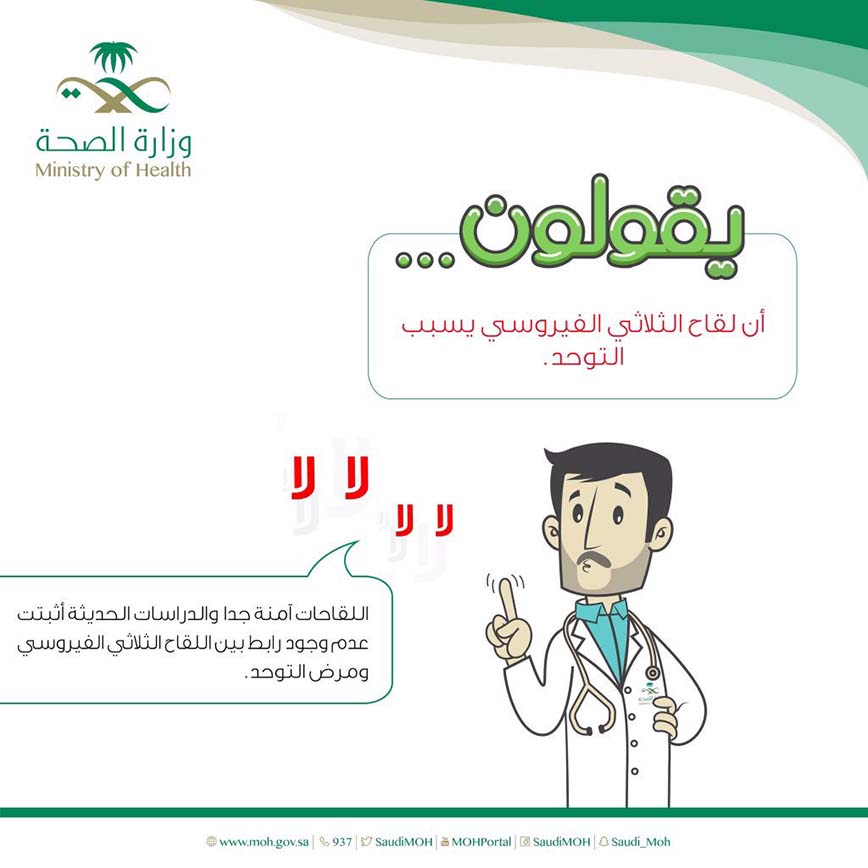 The Ministry of Health (MOH) has underlined the importance of vaccines in preventing communicable diseases, and as a cornerstone of public health, a means to protect individuals from communicable diseases, and the best way to protect children from diseases and epidemics. It warned against delaying vaccination unless the child has a high fever (more than 38 °C) or is hospitalized. This came as a part of MOH's activation of World Immunization Week. It tweeted a number of tips highlighting the importance of vaccines, and addressed a number of misconceptions by using the hashtag “#WorldImmunizationWeek.” It said that vaccines are safe and that recent studies have shown no link between MMR vaccine and autism.
The Ministry of Health (MOH) has underlined the importance of vaccines in preventing communicable diseases, and as a cornerstone of public health, a means to protect individuals from communicable diseases, and the best way to protect children from diseases and epidemics. It warned against delaying vaccination unless the child has a high fever (more than 38 °C) or is hospitalized. This came as a part of MOH's activation of World Immunization Week. It tweeted a number of tips highlighting the importance of vaccines, and addressed a number of misconceptions by using the hashtag “#WorldImmunizationWeek.” It said that vaccines are safe and that recent studies have shown no link between MMR vaccine and autism.
“Vaccination means a better life and a safer future for our children and the generations to come, and the targeted groups are: infants, children, the elderly and pregnant women, as well as patients with chronic diseases, pilgrims and travelers to infected areas," MOH said.
“The most vulnerable groups in need of immunization are those suffering from chronic diseases, immunological diseases, and the elderly, especially in the case of an epidemic. Data from studies and scientific reviews shows that vaccines do not damage children’s natural immune systems, and immunization is not limited to children.” Also, adults should be vaccinated against some diseases such as: hepatitis B, chickenpox, influenza and meningitis, it added.
Regarding the misconceptions that the increased level of hygiene led to disappearance of some diseases, MOH confirmed that recent studies and reports in the field proved the possibility of the recurrence of diseases in case their vaccines are no longer in use.
It is to be noted that vaccinations aim to preserve community health and to prevent some diseases and their complications, such as: limbs paralysis, hearing loss and brain damage.